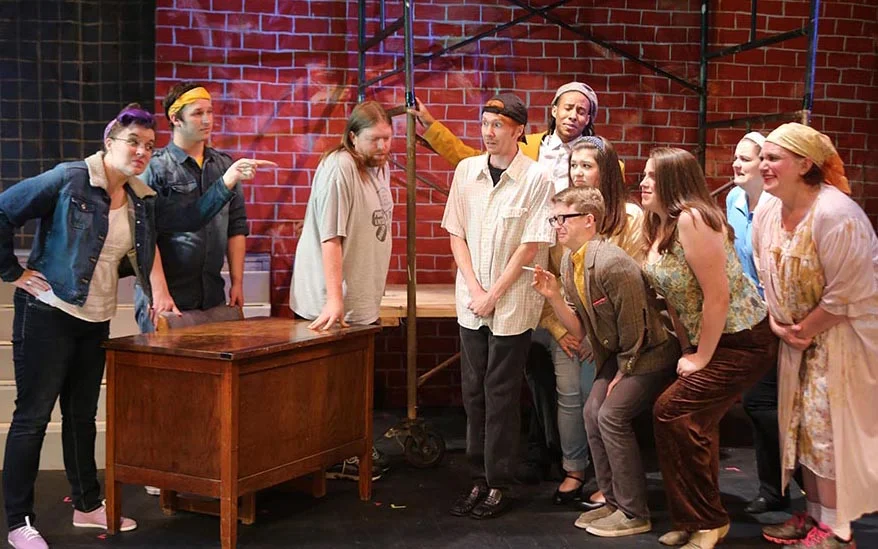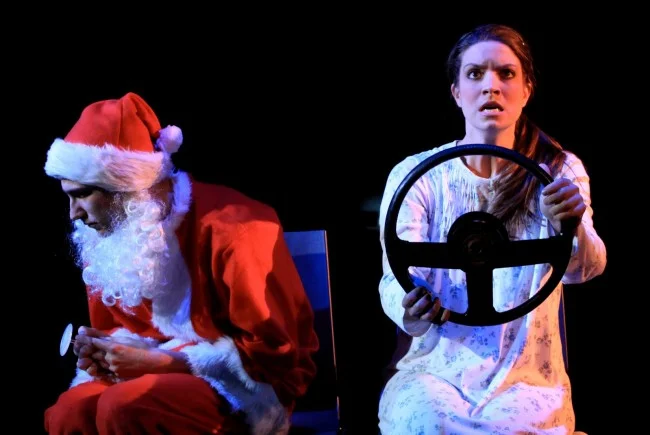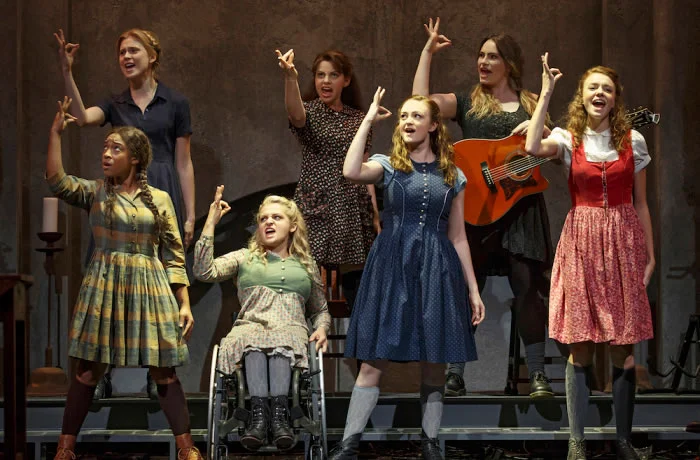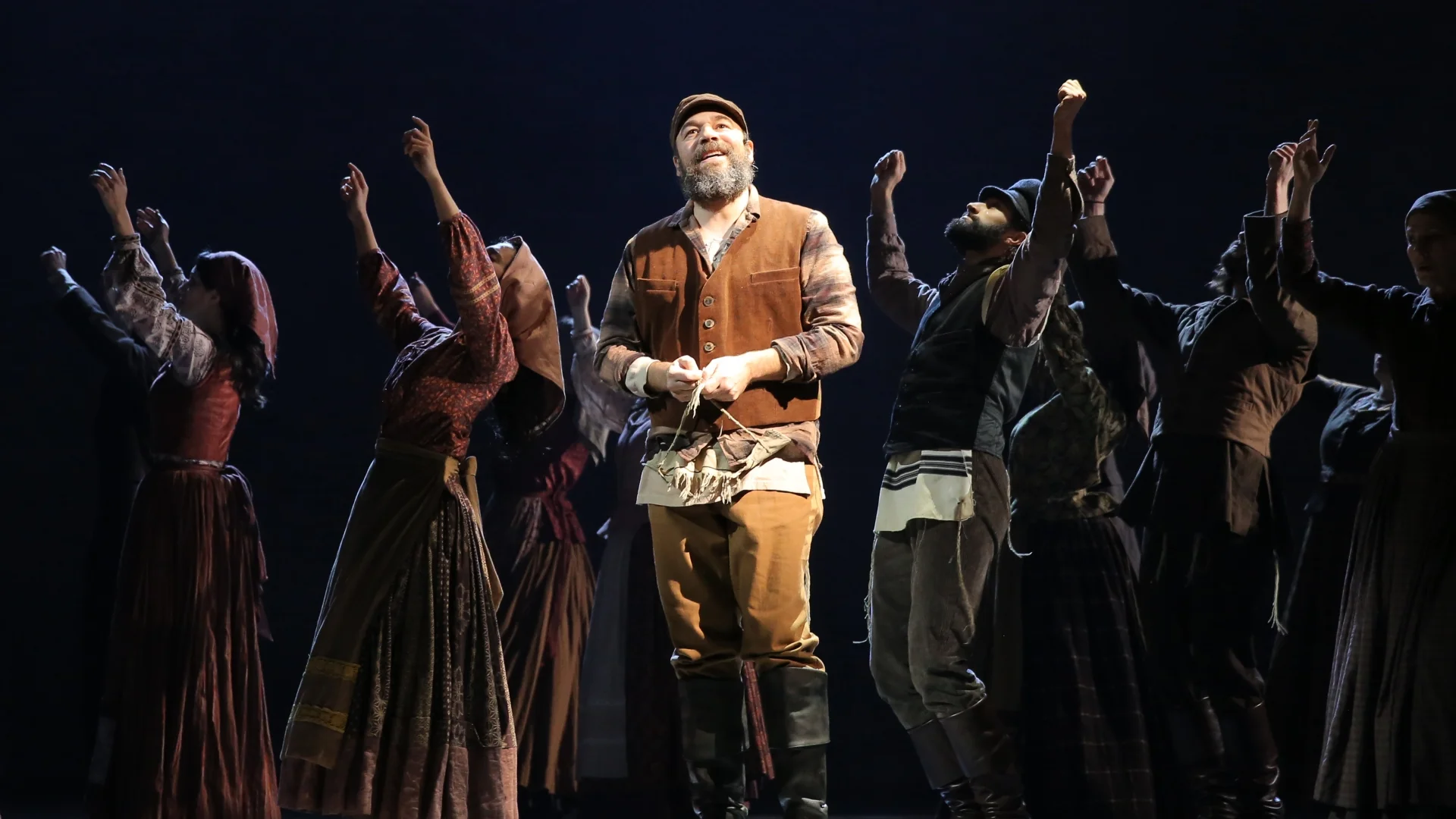The Stage Door
Content for Fans, By Fans
What Can Happen When You Start Studying Acting...
You go to school, you go to class. You sit and listen to the teacher. You absorb everything like a sponge, work through the new techniques in class, with your scene partners, and at home alone.
Then you notice everything you learn in the performances you watch.
And it never. Goes. Away.
Don’t Forget to Have Fun
Theatre is complicated, no matter what your role. Professionals make it look easy, as any professional in any field does. Stage managers have their blocking, cues, line notes. Actors think about their obstacles and objectives and using their favorite techniques. Costumers need to find or create costumes; sound designers need to make the perfect sounds and lighting designers need to make the perfect light mixtures.
Hopefully, you are doing your part in theatre out of love and passion. Hopefully, what you’re doing isn’t a chore and is something you actually love.
Hopefully, you’re actually having fun.
Five Ways to Stand Out In Your College Audition
It’s almost January which means it's prime audition time! You’ve already made the decision that you want to pursue Theatre, but now comes the nerve-wracking audition process. Your mind is running at a million miles a minute and all you can think of is the material you need to learn, the judges you need to impress, etc! I won’t try to tell you it’s going to be easy, but I will give you some ways to make a great first impression at these auditions!
Being a Theatre Kid and Not Majoring in Theatre
Being a theatre kid in college and not majoring in theatre is a hard knock life. I was so used to the “we don't make casting cuts” ways of my community theatre, that not getting into shows on campus and not having late rehearsals hit me like culture shock. But, I knew that what I was ex-periencing was a new reality. I had to dig down to my core to realize what I really missed from my theatre kid life, and find a way to get it back.
The Five Best Uses of Our Time in the “Off-Season”
As performers, we find ourselves in the dreaded “off-season” far more than we probably want to. Either work is hard to find, or we move cities, or life throws us curve balls that force us to take breaks. This time of year, college students are returning home for two weeks or more, which I recall seemed like an eternity after a semester of nonstop work.
Theatre Majors: Surviving Finals
Finals for a theatre major isn’t as easy as people outside of the theatre world may think. We may not spend hours in a lab trying to perfect an experiment, but we spend hours in the theatre trying to perfect that monologue for class. We spend hours in the library trying to research classic works. We try to power through the common core classes when we drive to find more creative ventures than memorizing scientific formulas. In reflecting on this semester’s finals week and the past finals in my last few years as a college student, here’s how I survived this semester’s finals
Casting Disabled Actors Leads To Better Shows
This summer, The New York Times published Alexis Soloski’s article “Actors With Disabilities Are Ready, Willing and Able to Take More Roles[NG1] ,” which is about another facet of the diversity in theater issue. The surge in colorblind casting is perhaps the most important theater trend of the year but Soloski points out that true diversity on stage means more than skin color. Increasingly, disabled actors are being showcased, whether portraying a character written with a similar condition in mind (like having Gregg Mozgala, an actor who has cerebral palsy, play a CP patient in the Williamstown Theater Festival’s production of “Cost of Living”) or casting a disabled actor in a role that wasn’t written specifically for one (like casting paraplegic Ali Stroker as Anna in “Spring Awakening,” making her the first wheelchair-user to perform on Broadway and at the Tonys). We’re seeing this on a smaller scale outside the theater too. Deaf model Nyle DiMarco recently won “Dancing With The Stars” and Hollywood is starting to wise up the issue, albeit slower. [NG2] Much, much slower. [NG3]
How Can Musical Theater Help Change Our World?
As a teacher and musical theater director, I have found myself struggling. I am turning on my television, going on Facebook, or browsing the internet and seeing so many discouraging things out there. We have polar opposites vying for the presidency, violence against law enforcement and minorities, sexism, racism, whitewashing casts, and even clown threats to our society. How do we explain this to children? How do we teach them to be better human beings with compassion, humility, and understanding? What can we do as musical theater educators and community theater programs?
How Educational Elitism is Hurting Theatre
We’re getting closer to the end of August, meaning that many students across the nation have just started – or are about to start – the Fall 2015 semester at the college or university that they currently attend. Personally, as I near the start of my last year of college, I am reminded of something that I’m sure many other college theatre students in America have faced at one point or another, and if they haven’t, probably will eventually. It is a problem that I believe is very unfortunate not just for us, but for the entire theatre community. Whenever I tell someone that I went to a local state university in Willimantic – as opposed to one of the larger and more well-known universities in the country – I get very similar reactions from various people. Sometimes it appears in the form of a “Well, why do you go there? Why not [insert school here]?” as if they believe that I am not as smart or talented as someone else might be, while in other cases it appears in the form of either a “Huh” or “Oh, okay” as they nod their heads, heavily indicating that they don’t think much of the college education I have received. In a few other cases, the reaction is merely complete silence.
Avoid the "The-Original Broadway Cast-Did-It-That-Way-Syndrome"
While there has been some positive change in the theater world, there is a growing issue of things staying the same.
For the sake of ease, I’ll refer to it as The-OBC-Did-It-That-Way-Syndrome; that is to say directors forgoing their own artistic input and simply recreating the original Broadway production. It’s an issue I’ve noticed a lot recently, especially at community theater productions or amateur shows. Everything down to the costuming, set, mannerisms and blocking are taken almost 100 percent from the libretto. There is nothing inherently wrong with this – those choices were made with the original creative team and are in the script for a reason – but far too often it impedes directorial creativity and makes the amateur version feel like a pale imitation of the original. The thrill of seeing your child/brother/friend/parent on stage aside, these copycat productions do little but offer the same nostalgia as watching The Wizard of Oz on late-night television for the hundredth time.









